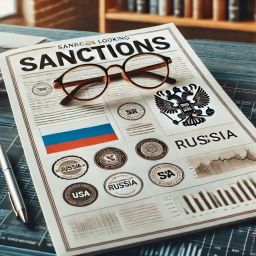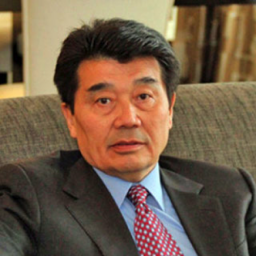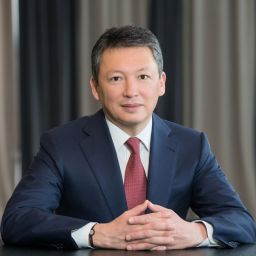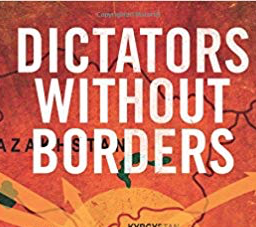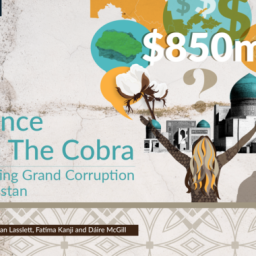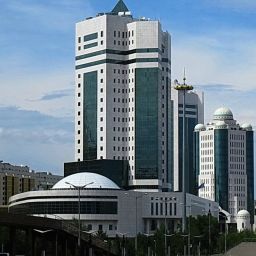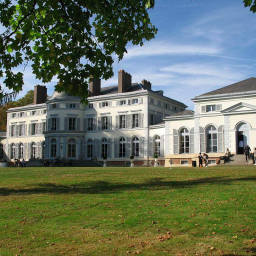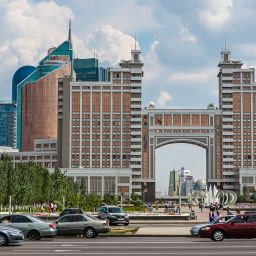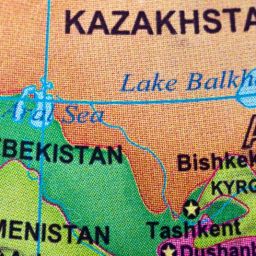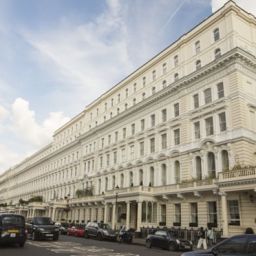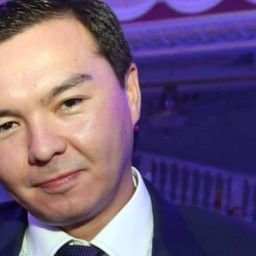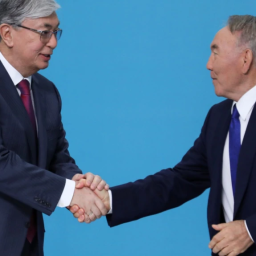Investment in London property by Politically-Exposed Persons from Central Asia: an extreme case of the UK’s exposure to high-end money laundering
Executive Summary
- High-end property in the United Kingdom is being used as a means to launder significant sums of money, with London especially a global hotspot for real estate purchases using illegally or corruptly obtained funds. Such properties can be used as a secretly owned asset that retains value, whilst also providing a bolt hole for corrupt individuals should they need to flee their home countries.
- Central Asia offers an example of what academics call an “extreme case” of money laundering. If Central Asian politically exposed persons (PEPs) are able to launder money in the UK in significant numbers, then it is highly likely that the UK is “open for business” for money laundering originating in all corners of the globe.
- This paper documents several examples of unexplained and/or suspicious Central Asian wealth entering the UK property market. All these cases feature the use of ‘shell companies” (non-trading companies used solely for a specific financial manoeuvre) to purchase these properties and hide the unexplained origins of the wealth behind the sale.
- The money used to purchase property can often be made up of corrupt funds that are co-mingled with legally obtained and/or quasi-legal funds, making the corruption proceeds practically indistinguishable from funds gained from other activities.
- The Tier 1 Investor Visa scheme has allowed for a number of individuals linked with corruption and other heinous activities to live in the UK. It is highly likely that some of the money used to secure these visas was garnered through criminal activity, especially prior to a tightening of the Tier 1 rules in April 2015, meaning that dirty money is willingly being taken by the UK government in return for residency.
- Although the UK has made significant strides in anti-corruption measures in recent years, such as the establishment of a beneficial ownership (Persons of Significant Control) register of UK-registered companies, and legislation that will hopefully lead to the disclosure of those who own property through offshore companies, we need to ensure that these measures are accompanied by effective, rigorous monitoring, and tough measures for those who fail to disclose such information, or are shown to have submitted false information.
- Stronger requirements are also needed for due diligence on the buyers, not just the sellers of property, as is currently the case, and penalties for those services providers who abet the corrupt in order to prevent corrupt money being invested in UK property in the first place. Finally, the legal standing of NGOs should be improved in order for action to be taken more easily on stolen wealth invested in the UK.
Introduction and Background
- We are a group of researchers from the universities of Exeter, Cambridge and Columbia, New York who have worked together on research on money laundering and the use of anonymous companies by political figures from Central Asia. This submission summarises our findings and those of our colleagues with regard to potential money laundering into London property.
- When kleptocrats and other criminals obtain money illicitly, they are keen to find ways to hide the corrupt origins of these funds and to store it somewhere that is both safe and will not lead to it losing its value. All investments, then, are vulnerable to exploitation by those seeking to launder the proceeds of corruption and other forms of crime. Bribes, kickbacks, embezzled funds and so on are, through this laundering process, given the appearance of legitimacy, ready to either be stored or used by criminals for further illicit or licit purposes.[1] One of the major ways that this is done is through international purchases of high-value property. Not only does this launder a significant amount of money in one tranche, but these properties can provide an important safety net for corrupt individuals if the situation in their home country turns against them. It means they have access to significant stored funds that will be difficult for officials in their home country to seize, or even identify. Additionally it provides them with a secret “bolt hole” that cannot be easily tied to them, where they can continue to live in considerable luxury without threats to their person or wealth.
- The weakness of major world economies to money laundering is coming under increasing international attention, as the IMF’s recently revised guidelines with consultations with the G7 countries.[2] Unfortunately, the London property market is a global hotspot for this practice. The combination of political stability, light-touch regulation and, importantly, privileged connections with well-established offshore tax havens, such as the British Virgin Islands, in the British Overseas Territories and Crown Dependencies, make London extremely attractive for corrupt individuals. The stability means there is little chance of their properties being lost to violence or political whim, and contributes to the fact that property in London generally retains its value or even produces a significant profit. The UK’s “light touch” regulation, which remains remarkably insufficient to identify dubious property purchases even following significant regulatory expansion in 2017, and connections with offshore jurisdictions means that corrupt individuals can through the UK property market achieve another of their key requirements: making it as difficult as possible to link the assets to their name and criminal activity. London also offers a number of other benefits to prospective launderers of corrupt funds. The purchase of luxury property in sought after areas of London gives a certain badge of respectability which can help individuals distance themselves from their previous corrupt practices, laundering their reputations as well as their funds. Prestigious public schools and world class private healthcare also serve to entice corrupt officials to make property purchases in the UK.
- Politicians from kleptocracies will often spend periods out of state employ in private business, allowing them a certain amount of “plausible deniability” when it comes to the source of funds. Money earned through legitimate or semi-legal business will often be mixed with that gained purely from graft, making the corruption proceeds practically indistinguishable from funds gained from other activities. Property purchases typically come at the end of the end of the money laundering process, when funds have already been co-mingled with other sources and passed through an array of shell companies set up in secrecy jurisdictions, making identifying the actual “beneficial” owners of these companies extremely difficult.
- The fact that UK law has so far allowed for property to be purchased by companies where the owners are not publicly identified has made it easy for laundering to occur. A shell company based in an offshore zone, often owned by another company in a different jurisdiction and so forth, will increases the difficulty of doing due diligence, and make it harder for law enforcement to track down the actual owner. Real estate agents may also overlook suspicious activity with the temptation of generous commissions and other pay offs, meaning that the practice of owning property anonymously has flourished in the UK.
- In 2013, the now defunct Financial Services Authority estimated that between £23bn and £57bn was being laundered in and through the UK annually,[3] and in 2016 the National Crime Agency noted it could amount to £90bn.[4] The scale of money laundering through London property purchases is, by the very nature of the secrecy involved, impossible to identify precisely. Still, there are clear indicators that it is highly prevalent. At least £4.2 billion worth of London property has been bought by those representing a high money laundering risk, with the real number likely to be much higher.[5] According to a 2013 Savills report, 90% of new-build luxury properties (£2000psft+) were purchased by overseas buyers, with the plurality of these being from Eastern Europe and the CIS.[6] Given that according to a 2018 Transparency International report, Central Asia and Eastern Europe have some of the highest perceived levels of corruption in the world, it is reasonable to draw the conclusion that many buyers are from areas with considerable issues with corruption, and that significant corrupt funds will likely be entering the UK property market as a result.[7]
The Central Asian Cases
- Central Asia – which we understand as the five post-Soviet Central Asian republics of Kazakhstan, Kyrgyz Republic, Tajikistan, Turkmenistan and Uzbekistan – is routinely considered an isolated region of the world. Indeed, the area lacks imperial-era ties to the UK and was isolated from most of the rest of the world during the Soviet period. Its states only became independent in 1991 and therefore their history of involvement in the global financial system is only a couple of decades old. However, as researchers on Central Asia, we have found that the trail of power and money from the region extends to London, via an offshore root through anonymous companies often registered in in UK overseas territories. To the extent that service providers (for example, company formation agents, solicitors, accountants) facilitate transactions without effective checks on Central Asian PEPs, London and other major financial centresare, in effect, complicit in the authoritarian consolidation and unequal development of the Central Asian region. From an economic crime perspective, Central Asia offers an extreme case as it is not a region we would expect to figure widely in the data of property purchases and residency requests through the Tier 1 visa scheme. And yet, as the cases document below demonstrate, Central Asia in general, and Kazakhstan in particular, is a major source of unexplained wealth flowing into the UK.
- When then-prime minister David Cameron outlined his government’s plans to crack down on suspicious funds being used in the UK property in a speech in Singapore in 2015, he referred specifically to a property portfolio that features a building valued at over £130 million, and situated in the centre of London: 215–237 Baker Street. Since around 2008, it has been ultimately owned by a series of secretive companies registered in the British Virgin Islands which serve to hide the identity of the true owner or owners.[8] Anti-corruption organisations have investigated this property in an attempt to uncover its likely owners, although the nature of offshore secrecy and the difficulty of penetrating these networks make unravelling exactly who owns the property a difficult task. It is worth noting that the property is owned at the initial level by a company registered in the UK, which is now required under new legislation to disclose its beneficial owners, dubbed “persons of significant control” or PSCs. However, the company’s corporate filings say that there are no PSCs under the current definition, which means that the identity of the property’s owners remain hidden.[9] In 2015, a Global Witness report suggested that the building’s owner had ties to Rakhat Aliyev, the former son-in-law of the presidentof Kazakhstan, Nursultan Nazarbayev.[10] Lawyers representing the nominee director of the holding company owning the properties denied Aliyev was the owner, but refused to name the actual owner, citing reasons of confidentiality.[11] A subsequent investigation by news website Quartz in 2018, using court documents as well as files leaked in the Panama Papers scandal, suggests that the properties were owned at least in part by one or more family members of the Kazakh president. Quartz reports that Rakhat Aliyev’s former wife, Dariga Nazarbayeva(President Nazarbayev’s eldest daughter) and their son Nurali Aliyev are linked to the properties. Both have held key positions in Kazakhstan: Dariga has been the country’s deputy prime minister and Nurali deputy mayor of Astana, Kazakhstan’s capital. According to Forbes Kazakhstan, both have also accrued hundreds of millions of dollars in private wealth.[12]
- In April 2010, the Kyrgyz people forcibly removed President Kurmanbek Bakiyev from power amid allegations that he and his son Maxim Bakiyev, who was in charge of a government development agency, had stolen money from the state and had commissioned the murders of political opponents.[13] A Kyrgyz court found Maxim Bakiyev guilty in absentia of participating in corruption by embezzling millions of funds from the Kyrgyz state, illegally privatising public land, and selling off state energy firms for a fraction of their value. He claimed asylum in the UK in June 2010 and has used a £3.5 million mansion in Surrey as his address since his arrival. A Belize registered offshore company, Limium Partners Limited, purchased this mansion in August 2010. A 2015 Global Witness report linked this company to others involved in an alleged anti-money laundering scheme used to funnel state funds out of Kyrgyzstan.[14] Despite the convictions against Bakiyev in the Kyrgyz Republic, he has secured residency in the UK, claiming he would be subject to unfair legal proceedings and possible physical harm in his home country.[15].
- Gulnara Karimova is the daughter of the former President of Uzbekistan, Islam Karimov. She held a variety of diplomatic positions in Uzbekistan until 2013. Authorities in several countries are currently investigating assets which are linked to Karimova, who is the focus of an $800 million bribery investigation into payments made by “three European telecommunications companies in exchange for access to local markets between 2004 and 2013”.[16] The head of the U.S. Department of Justice’s criminal division has said that the case was “the largest forfeiture actions we have ever brought to recover bribe proceeds from a corrupt government official.”[17] Karimova’s boyfriend, Rustam Madumarov, bought properties in London worth more than £17 million using shell companies and a network of offshore accounts. Two companies registered in the British Virgin Islands acquired the properties. Prosecutors in Uzbekistan have described both Madumarov and Karimova as members of an “organised crime network”. [18]
- Timur Kulibayev, son-in-law of the president of Kazakhstan, purchased using a company registered in the British Virgin Islands a 12-bedroom mansion, which had been home to Prince Andrew and Sarah Ferguson, for £15 million, which was at least £3 million over the asking price,[19] and £8.6 million more than Kulibayev was advised by a surveyor that the house would be worth at auction.[20] It was bought through “apparently concealed” links to a series of offshore companies. Buckingham Palace said the sale of the mansion, Sunninghill Park, “was a straight commercial transaction between the trust which owned the house and the trust which bought it”[21]. In September 2010, a spokesperson for Kulibayev also denied the use of “corrupt” funds and told that the allegations against him were “politically motivated.”[22] However, in 2010 U.S. diplomats reported from Kazakhstan in cables published by WikiLeaks, that there is “endemic corruption among Kazakh officials”, and one unnamed U.S. diplomat describes Kulibayev as “the favoured presidential son-in-law” and “the ultimate controller of 90 percent of the economy of Kazakhstan”.[23] Kulibayev has also purchased two large blocks with adjoining mews properties in Mayfair for about £45 million, also using companies registered in the British Virgin Islands.[24]
- These property purchases are often accompanied by residency (and ultimately citizenship) requests. The Tier 1 Investor Visa scheme in the UK gives individuals residency in exchange “for people with high net worth to make a substantial financial investment in the UK”, of £2 million or more.[25] Our research and analysis revealed that Kazakhs were probably the largest per capita recipients on Tier 1 investor visas of any foreign national group.[26] Between 2008 and 2013, forty-one Kazakh nationals were given UK residency, ranking Kazakhs as the sixth highest country recipients to this permit and the highest per-capita recipients.[27] These Kazakh nationals attained these visas during the period of 2008 to 2015, when checks on applicants and their wealth were neither the responsibility of the British government or applicants” banks.[28] Transparency International concluded in a study of the Tier 1 Investor Visas that “it is likely that substantial amounts of corrupt wealth stolen from China and Russia have been laundered into the UK through the UK’s Tier 1 Investor visa programme”. Madiyar Ablyazov, son of Mukhtar Ablyazov, former chair of Kazakh bank BTA, filed his application for his Tier 1 Visa in 2009 and two months later it was granted. As part of the process, funds of just over £1 million were put into Madiyar’s name and the Ablyazov family provided the UK border agency with a “memorandum of gift” to reference this, signed by Madiyar and Mukhtar Ablyazov. Around the same time however, Mukhtar had fled Kazakhstan for London, whilst BTA was being probed by regulators, leading to a subsequent UK High Court judgment that Mukhtar Ablyazov had “perpetuated a huge and systematic fraud against it, primarily by purporting to lend or otherwise transfer billions of dollars to offshore companies with no assets and which appeared to be in the control of [Mukhtar] Ablyazov or his associates”.[29]
- Conventional thinking about Central Asia regards the region as isolated. However, as these cases show, through international purchases of real estate, the use of shell companies for business transactions, outsourcing legal disputes to international courts, and obtaining multiple passports, Central Asian elites have become globalised “by embedding their transactions in transnational networks”.[30] Despite these increasingly globalised networks and connections to liberal democratic countries operated by Central Asian elites, the politics of the region has become increasingly authoritarian and repressive to citizens at home and political exiles abroad. The Central Asian regimes partake in active security campaigns, which target exiled opposition leaders abroad. Public protests are often violently crushed, such as in 2005 in Andijan, Uzbekistan, and in Zhanaozen, Kazakhstan in 2011. Additionally, this is set against a backdrop of corruption evidenced by Transparency International’s 2018 Corruption Perception Index of public sector corruption, where all five Central Asian countries are ranked in the bottom third of those countries perceived to be the most corrupt, with Turkmenistan ranked 167th and Uzbekistan 157th out of 180 countries. [31]
Implications and Recommendations
These Central Asian cases are an extreme illustration of a much larger problem. In 2016 the National Crime Agency estimated that laundered money running through the UK might amount to £90 billion annually, with much of it ending up in property.[32] Transparency International’s research using open-source data found over £4.4 billion worth of properties bought across the UK with suspicious wealth linked to at least 160 properties.[33] Those purchasing the properties are “high-corruption risk individuals”, including those who have been charged and convicted with corruption offences. 84% of these properties are identified to be in London totalling a value of £4.2 billion.[34] These figures do not indicate the full extent of corruption as they are based only on publicly available sources. High-profile cases of money laundering by corrupt officials or their family members from outside Central Asia include the case of SaadiGadaffi, son of Libya’s Colonel Gadaffi, who purchased a £10 million home in Hampstead in London using a British Virgin Island registered anonymous company.[35] After Gadaffi was deposed, Libya’s transitional government was granted a default judgement against this anonymous company, as the High Court in London in 2012 ruled that the “property rightfully belonged to the Libyan state as it had been purchased with diverted state funds”.
Central Asian elites routinely use anonymous shell companies to structure private pay-offs from international transactions or to hide their acquisition of foreign assets such as luxury real estate. The exposure of the beneficial owners of all companies at a national and international level needs to happen so that civil society has access to this information. A 2016 reform requires beneficial owners of UK registered companies to be placed on record, yet legislation is only as strong as its enforcement. The recent prosecution of a whistle-blower who highlighted the laxity of checks on information submitted to Companies House by registering a UK company using the name of a politician[36] sent out the wrong message: this was the first prosecution of its kind, despite the fact, amongst many other examples, a 2012 Global Witness report had highlighted how criminals from Central Asia and Russia had used the identity of a deceased individual to register a company in the UK: no prosecution, or even investigation, appears to have taken place.[37]
In addition, there are pitfalls in the due diligence conducted by estate agents, and their responsibilities should be extended to include due diligence checks on the buyer and not just the seller. These checks should include ensuring that the purchasing company has declared its beneficial owners and that appropriate checks have been carried out on those individuals.
We recommend the following policy measures for the UK government:
- Give NGOs greater legal standing to take civil and criminal legal action against stolen assets located in the UK. The recent conviction of Teodorin Obiang in Paris thanks to a case brought by French NGOs shows what can be done.
- More strictly audit intermediaries, especially banks, to ensure that they are exercising their “Know Your Customer” and suspicious transaction reporting responsibilities. There must be fines for those who fail on this front in order to create a fund to support point 1 above. Currently, even when the proceeds of corruption are detected in the UK, the banks and other intermediaries that facilitate their entry almost always escape investigation and accountability.
- Better engage the private sector to participate in the hunt for stolen assets. Most of the skills necessary to conduct complex asset recovery cases are in the private sector, and given the very limited budgets for investigation for the National Crime Agency, it is necessary to enlist their help through enabling them to take a share of recovered assets.
- Better co-ordinate the system of international tax information exchange and investigation with anti-money laundering and anti-corruption systems. There has been a step-change in the amount of information exchanged for tax purposes, but too often this is isolated from fighting other kinds of financial crime.
- More robustly apply visa denial provisions against senior officials from systematically corrupt governments. This is a cheap and effective measure that is currently under-used.
REFERENCES
1) Alexander A. Cooley, John Heathershaw, 2017, Dictators Without Borders, Yale University Press: New Haven
2) Empty Homes, 2018, Empty Homes in London, http://www.emptyhomes.com/assets/final_ehe_2018_web.pdf accessed 19/04/2018
3) Financial Services Authority, 2013, http://www.fsa.gov.uk/about/what/financial_crime/money_laundering/faqs accessed 19/04/2018
4) Global Witness, 2015, Blood Red Carpet. https://www.globalwitness.org/en/campaigns/corruption-and-money-laundering/mystery-baker-street/. Accessed 15/04/2018
5) Global Witness, 2015, Mystery on Baker Street https://www.globalwitness.org/en/campaigns/corruption-and-money-laundering/mystery-baker-street/ accessed 19/04/2018
6) Guardian, 2010, Prince Andrew and the Kazakh Billionaire. https://www.theguardian.com/uk/2010/nov/29/prince-andrew-kazakh-billionaire. Accessed 02/05/2018.
7) Guardian, 2016, Prince Andrew tried to broker crown property deal for Kazakh oligarch. https://www.theguardian.com/uk-news/2016/jul/03/prince-andrew-broker-crown-property-kazakh-oligarch. Accessed 02/05/2018.
8) Guardian. 2017. The “Golden Visa” Deal: “We Have in Effect Been Selling off British Citizenship to the Rich”. Available: https://www.theguardian.com/uk-news/2017/jul/04/golden-visa-immigration-deal-british-citizenship-home-office. Accessed 19/04/2018
9) Home Office. 2018. Tier 1 (Investor). https://assets.publishing.service.gov.uk/government/uploads/system/uploads/attachment_data/file/675203/tier-1-investor-v12.0ext.pdf. Accessed 18.04.2018.
10) Migration Advisory Committee. (2014). Tier 1 (Investor) Route: Investment Thresholds and Economic Benefit.https://assets.publishing.service.gov.uk/government/uploads/system/uploads/attachment_data/file/285220/Tier1investmentRoute.pdf. Accessed 19/04/2018
11) National Crime Agency. 2016. National Strategic Assessment of Serious and Organised Crime 2016. http://www.nationalcrimeagency.gov.uk/publications/731-national-strategic-assessment-of-serious-and-organised-crime-2016/file. 19/04/2018
12) Savills, 2013, Spotlight: The World in London http://pdf.euro.savills.co.uk/residential—other/spot-worldlondon-lr.pdf accessed 19/04/2018
13) Telegraph, 2010, WikiLeaks: Kazakh billionaire who bought Duke of York‘s home has “avarice for large bribes”. https://www.telegraph.co.uk/news/worldnews/wikileaks/8170767/WikiLeaks-Kazakh-billionaire-who-bought-Duke-of-Yorks-home-has-avarice-for-large-bribes.html. Accessed 02/05/ 2018.
14) Telegraph, 2017, Fears that “dirty money” paid for Uzbek dictator‘s daughter‘s £17m Mayfair and Belgravia homes. https://www.telegraph.co.uk/news/2017/12/02/fears-dirty-money-paid-uzbek-singers-london-homes/. Accessed 02/05/2018
15) Transparency International, 2015, Corruption on Your Doorstep, http://www.transparency.org.uk/publications/corruption-on-your-doorstep/#.WrEhjWrFKUk accessed 19/04/2018
16) Transparency International, 2018, Corruption Perceptions Index 2017, https://www.transparency.org/news/feature/corruption_perceptions_index_2017accessed 19/04/2018
17) Transparency International. 2017. Faulty Towers: Understanding the Impact of Overseas Corruption on the London Property Market. http://www.transparency.org.uk/publications/faulty-towers-understanding-the-impact-of-overseas-corruption-on-the-london-property-market/#.Wtdh1SMrK8o. Accessed 18.04.2018
18) Transparency International, 2017, Overseas Corruption Pricing Londoners Out of the Capital http://www.transparency.org.uk/press-releases/faulty-towers/#.WuBl6Zch3IU accessed 19/04/2018
May 2018
ACTSO Ltd. A subsidiary company of the Trading Standards Institute. Registered in England and Wales. Register Number 8091348. Registered office: 1 Sylvan Court, Sylvan Way, Southfields Business Park, Basildon, Essex SS15 6TH VAT Reg. No GB 795 8626 60
[1] Transparency International, 2015, Corruption on Your Doorstep, http://www.transparency.org.uk/publications/corruption-on-your-doorstep/#.WrEhjWrFKUk accessed 19/04/2018
[2] IMF, Review of 1997 Guidance Note on Governance — A Proposed Framework for Enhanced Fund Engagement, 22 April 2018, http://www.imf.org/en/Publications/Policy-Papers/Issues/2018/04/20/pp030918-review-of-1997-guidance-note-on-governance
[3] Financial Services Authority, 2013, http://www.fsa.gov.uk/about/what/financial_crime/money_laundering/faqs. Accessed 19/04/2018
[4] National Crime Agency. 2016. National Strategic Assessment of Serious and Organised Crime 2016. http://www.nationalcrimeagency.gov.uk/publications/731-national-strategic-assessment-of-serious-and-organised-crime-2016/file. Accessed 19/04/2018.
[5] Transparency International, 2017, Overseas Corruption Pricing Londoners Out of the Capital http://www.transparency.org.uk/press-releases/faulty-towers/#.WuBl6Zch3IU. Accessed 19/04/2018
[6] Savills, 2013, Spotlight: The World in London http://pdf.euro.savills.co.uk/residential—other/spot-worldlondon-lr.pdf. Accessed 19/04/2018
[7] Transparency International, 2018, Corruption Perceptions Index 2017, https://www.transparency.org/news/feature/corruption_perceptions_index_2017.Accessed 19/04/2018
[8] Quartz, 2018, The Unsolved Mystery of who owns Sherlock Holmes‘s original £130 million home. https://qz.com/1245110/the-unsolved-mystery-of-who-owns-sherlock-holmes-130-million-home/. Accessed 02/05/2018.
[9] Quartz, 2018, op.cit.
[10] Global Witness, 2015, Mystery on Baker Street https://www.globalwitness.org/en/campaigns/corruption-and-money-laundering/mystery-baker-street/. Accessed 19/04/2018.
[11] Quartz, 2018, op.cit.
[12] Quartz, 2018, op.cit.
[13] Global Witness, 2015, Blood Red Carpet. https://www.globalwitness.org/en/campaigns/corruption-and-money-laundering/mystery-baker-street/. Accessed 15/04/2018.
[14] Global Witness, 2015, op.cit.
[15] Alexander A. Cooley, John Heathershaw, 2017, Dictators Without Borders, Yale University Press: New Haven, p.45
[16] Telegraph, 2017, Fears that “dirty money” paid for Uzbek dictator‘s daughter‘s £17m Mayfair and Belgravia homes. https://www.telegraph.co.uk/news/2017/12/02/fears-dirty-money-paid-uzbek-singers-london-homes/. Accessed 02/05/2018.
[17] Guardian, 206, VimpelCom pays $835m to US and Dutch over Uzbekistan telecoms bribes. http://www.theguardian.com/world/2016/feb/19/vimpelcom-pays-835m-to-us-and-dutch-over-uzbekistan-telecoms-bribes. Accessed 04/05/2018.
[18] Telegraph, 2017, op.cit.
[19] Guardian, 2010, Prince Andrew and the Kazakh Billionaire. https://www.theguardian.com/uk/2010/nov/29/prince-andrew-kazakh-billionaire. Accessed 02/05/2018.
[20] Daily Mail, 2010, £7m — the true “profit” made by Andrew on Sunninghill: How Kazakh oligarch‘s estate agent valued Prince‘s former house £4m less than “guide price. http://www.dailymail.co.uk/news/article-1337870/7m-true-profit-Andrew-Sunninghill-How-Kazakh-oligarchs-estate-agent-valued-Princes-house-4m-guide-price.html. Accessed 03/05/2018.
[21] Guardian, 2016, Prince Andrew tried to broker crown property deal for Kazakh oligarch. https://www.theguardian.com/uk-news/2016/jul/03/prince-andrew-broker-crown-property-kazakh-oligarch. Accessed 02/05/2018.
[22] Guardian, 2010, Op.cit.
[23] Telegraph, 2010, WikiLeaks: Kazakh billionaire who bought Duke of York‘s home has “avarice for large bribes”. https://www.telegraph.co.uk/news/worldnews/wikileaks/8170767/WikiLeaks-Kazakh-billionaire-who-bought-Duke-of-Yorks-home-has-avarice-for-large-bribes.html. Accessed 02/05/ 2018.
[24] Telegraph, 2010, Prince Andrew & The Kazakhstan Connection. https://www.telegraph.co.uk/news/uknews/theroyalfamily/7782958/Prince-Andrew-and-the-Kazakhstan-connection.html. Accessed 03/05/2018.
[25] Home Office. 2018. Tier 1 (Investor). https://assets.publishing.service.gov.uk/government/uploads/system/uploads/attachment_data/file/675203/tier-1-investor-v12.0ext.pdf. Accessed 18.04.2018.
[26] Cooley & Heathershaw, 2017, p.44
[27] Migration Advisory Committee. (2014). Tier 1 (Investor) Route: Investment Thresholds and Economic Benefit.https://assets.publishing.service.gov.uk/government/uploads/system/uploads/attachment_data/file/285220/Tier1investmentRoute.pdf. Accessed 19/04/2018.
[28] Guardian. 2017. The “Golden Visa” Deal: “We Have in Effect Been Selling off British Citizenship to the Rich”. Available: https://www.theguardian.com/uk-news/2017/jul/04/golden-visa-immigration-deal-british-citizenship-home-office. Accessed 19/04/2018
[29] Guardian, Op.cit
[30] Alexander A. Cooley, John Heathershaw, op.cit, p.52.
[31] Transparency International, 2018, op.cit.
[32] National Crime Agency, 2016, op.cit.
[33] Transparency International. 2017. Faulty Towers: Understanding the Impact of Overseas Corruption on the London Property Market. http://www.transparency.org.uk/publications/faulty-towers-understanding-the-impact-of-overseas-corruption-on-the-london-property-market/#.Wtdh1SMrK8o. Accessed 18.04.2018.
[34] Ibid.
[35] Global Witness, 2015, Blood Red Carpet, op.cit.
[36] Mirror, 2018, Outrage as whistleblower is prosecuted for warning about Companies House frauds, https://www.mirror.co.uk/news/politics/outrage-whistleblower-prosecuted-warning-companies-12373225. Accessed 04/05/2018.
[37] Global Witness, 2012. Grave Secrecy, https://www.globalwitness.org/en/campaigns/corruption-and-money-laundering/anonymous-company-owners/grave-secrecy/. Accessed 03/05/2018.
John Heathershaw, University of Exeter
Tom Mayne, independent researcher and consultant
Jason Sharman, University of Cambridge
Alexander Cooley, Columbia University, New York
David Lewis, University of Exeter
With assistance from:
Robert Pearce, University of Exeter
Ayesha Kenan, University of Exeter
Evidence submitted by National Trading Standards (ECR0016)
